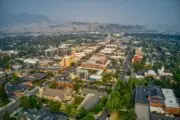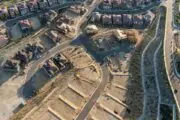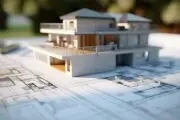
New insights gathered by the City of Vancouver show that the majority of local residents want to see more housing options made available in their city.
This week, the City released results for the third phase of public engagement on the Vancouver Plan, a long-term, city-wide urban planning project up to 2050 and beyond. The report was designed to learn more about the public’s highest priorities, and where and how the City of Vancouver should locate and prioritize growth.
The engagement was carried out with 6,500 points of contact between mid-October to mid-November in 2021 through a variety of surveys, virtual workshops and pop-ups booths.
Those that were surveyed indicated that their highest priorities were providing equitable housing choices in all neighbourhoods, in addition to protecting ecosystems, reducing the city’s carbon footprint and protecting small, local businesses. Participants also indicated support for the three Big Ideas of the Vancouver Plan that were determined through the first two phases of the project’s engagement process, which includes climate change protection, more equitable housing and an “economy that works for all.”
Support voiced for housing options, sustainable construction
In phase three of engagement, 78 per cent of those surveyed either strongly or somewhat agreed that Vancouver should have a range of housing options in all neighbourhoods, especially those with low density now.
Eighty per cent of respondents said that they supported low-rise apartments up to six storeys, multiplexes and townhouses in areas where there are mostly detached homes. A little less than half (48 per cent) of respondents said that mid-rise buildings up to 12 storeys are also acceptable.
The majority of participants stated that they preferred density to be spread out, with more six- to 12-storey buildings distributed throughout rapid transit areas, as opposed to concentrations of over 12 storeys closer to stations.
When it comes to shopping areas, the majority of respondents voiced that they preferred density in lower-rise buildings in the surrounding neighbourhood versus taller structures located immediately in and around the shopping area.
Eighty-six per cent of respondents agreed that Vancouver needs more housing options close to shops and services. When asked to select up to five features or amenities that are most needed to help their neighbourhood thrive, participants chose grocery stores (64 per cent), access to fast and reliable transit (61 per cent), public open spaces (52 per cent), places to eat and drink (45 per cent) and safe pathways and connections for walking and biking (45 per cent).
On smaller, local neighbourhood roads, 77 per cent of respondents supported rental housing options. More than two-thirds of participants (68 per cent) agreed all Vancouver neighbourhoods should have housing options through increased heights and density for residents who make less than $80,000 in income annually.
When building new housing, 79 per cent of survey respondents agreed that Vancouver should require sustainable construction methods, with 95 per cent of participants concurring that Vancouver should ensure that its “grey and green infrastructure,” can withstand and adapt to the impacts of climate change.
After three phases of engagement, the Vancouver Plan is expected to be finalized in April 2022. The draft plan, which will include a land use strategy, will be presented to the public for feedback, after which the final Vancouver Plan will be presented to City Council for approval in June 2022.






